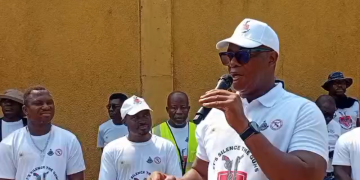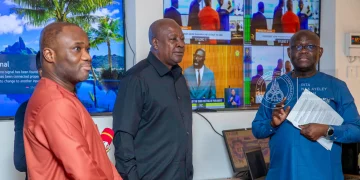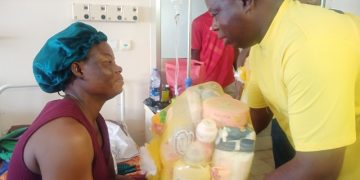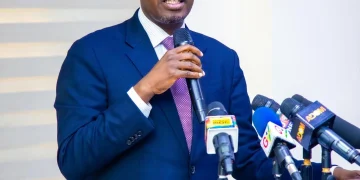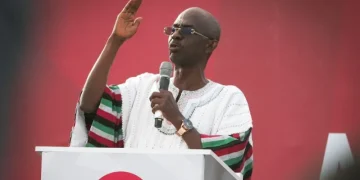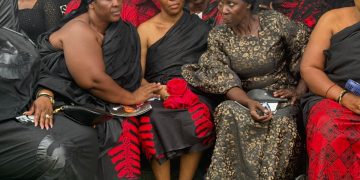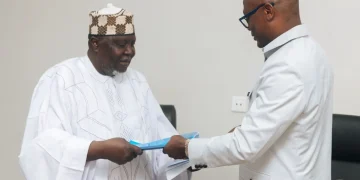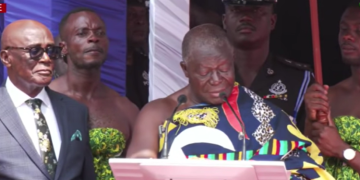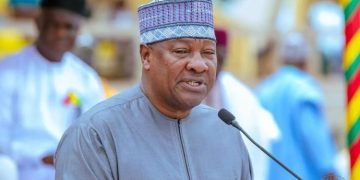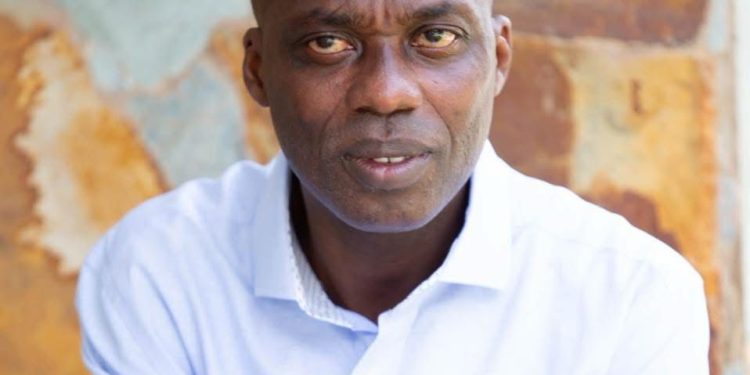The recent news of Ghana’s Vice President seeking medical treatment abroad has reignited debates about the state of the country’s healthcare system.
This recurring pattern highlights the reliance of Ghana’s political elite on foreign healthcare, underscoring the inadequacies of the local health infrastructure. Despite calls for reform, including proposals to ban state-sponsored medical tourism, progress remains elusive.
Ghana’s healthcare system continues to struggle with providing comprehensive care to its citizens. For ordinary Ghanaians, critical illnesses often result in resignation rather than access to specialized treatment. In contrast, political leaders frequently turn to foreign hospitals, exposing the lack of confidence in the very system they oversee.
Dr. Kwame Asiedu Sarpong, a Fellow at CDD Ghana, in a Facebook post points out the hypocrisy often surrounding these debates.
“We reduce life-and-death issues to political football, shifting our stance depending on who is in power rather than standing on principle,” he notes, emphasizing that healthcare should transcend political affiliations.
Dr. Sarpong, however, noted that the issue of medical tourism is often politicized, with opposing parties shifting their stance depending on who is in power.
This partisan approach, he believes undermines efforts to address systemic healthcare failures.
“There are those who, just a few years ago, passionately defended the medical trips of a former Vice President but today see this as karma and vindication of their position. Likewise, there are those who were outraged when a former Vice President sought treatment abroad but now attempt to silence journalists and well-meaning citizens who dare to ask valid questions.”
Dr. Sarpong urges leaders to take responsibility and prioritize building a robust healthcare system that caters to all citizens.
“The political class must understand that each time one of them seeks medical refuge abroad, it serves as an indictment of their governance. It is proof that they have not built a system even they can trust with their lives. And if they cannot trust it, how can the rest of us?”
As Ghana grapples with these challenges, Dr. Sarpong calls for sober reflection and action.
He stressed “This is a moment for sober reflection. Healthcare should not be a privilege for a select few; it should be a fundamental right guaranteed by a system that is robust, well-resourced, and capable of meeting the needs of all citizens—not just in rhetoric but in practice.”
While wishing the Vice President a speedy recovery, Dr. Sarpong reminds us of the broader implications.
“Let her illness serve as a reminder that the next Ghanaian who falls critically ill may not have the same escape route. And that is where the real crisis lies.”
Read the full statement:
Ghana’s Political Class and Medical Care Abroad: A Recurring Reality Check
Once again, we find ourselves confronting an uncomfortable but familiar reality. The Vice President has reportedly been taken ill and, based on medical advice, has been asked to seek further treatment abroad. This is neither the first nor will it be the last time that a high-ranking member of Ghana’s political class turns to foreign healthcare in times of crisis. Each time it happens, we are reminded—painfully—of the state of our own health system and the glaring inequities within it.
There have been calls, including from members of government like the Foreign Minister, for a ban on such state-sponsored medical tourism.
The argument is simple: if our leaders were forced to rely on the same healthcare system as ordinary Ghanaians, they would have a vested interest in improving it.
In principle, I have always opposed a system that prioritizes the elite in times of emergency, but I have also consistently questioned the feasibility of an outright ban. The reality is that the health system they built does not inspire confidence—even among those who preside over it.
But here is the deeper question: why do we keep returning to this debate? Because it is a stark reflection of how little progress we have made in building a healthcare system that truly serves all Ghanaians.
After three decades under the Fourth Republic, we still cannot guarantee that the average citizen will receive comprehensive, life-saving care without the need for external intervention. When an ordinary Ghanaian falls critically ill, there is no guarantee of timely access to specialized treatment.
The response is often not a flight to a well-equipped foreign hospital but a resignation to fate.
A Call for Consistency: Health Has No Political Colour
While we reflect on these issues, it is disheartening to see how extreme partisanship continues to overshadow meaningful conversation.
There are those who, just a few years ago, passionately defended the medical trips of a former Vice President but today see this as karma and vindication of their position. Likewise, there are those who were outraged when a former Vice President sought treatment abroad but now attempt to silence journalists and well-meaning citizens who dare to ask valid questions.
This hypocrisy is part of why nothing ever changes. We reduce life-and-death issues to political football, shifting our stance depending on who is in power rather than standing on principle. We must remind ourselves that health has no political colour. When the system fails, it fails us all—NPP, NDC, and the politically neutral alike.
Until we begin to demand better, not for political points but for national progress, we will keep repeating this cycle.
The Political Class Must Take Responsibility
So we must ask: How did we get here? Why has successive leadership failed to invest in world-class healthcare infrastructure that would reduce the need for such desperate measures? How do we move beyond rhetoric and enact real policies that ensure medical excellence is available within our borders?
The political class must understand that each time one of them seeks medical refuge abroad, it serves as an indictment of their governance. It is proof that they have not built a system even they can trust with their lives. And if they cannot trust it, how can the rest of us?
This is a moment for sober reflection. Healthcare should not be a privilege for a select few; it should be a fundamental right guaranteed by a system that is robust, well-resourced, and capable of meeting the needs of all citizens—not just in rhetoric but in practice.
I extend my best wishes to the Vice President for a speedy recovery. But let her illness serve as a reminder that the next Ghanaian who falls critically ill may not have the same escape route. And that is where the real crisis lies.
www.kumasimail.com /Kwadwo Owusu



